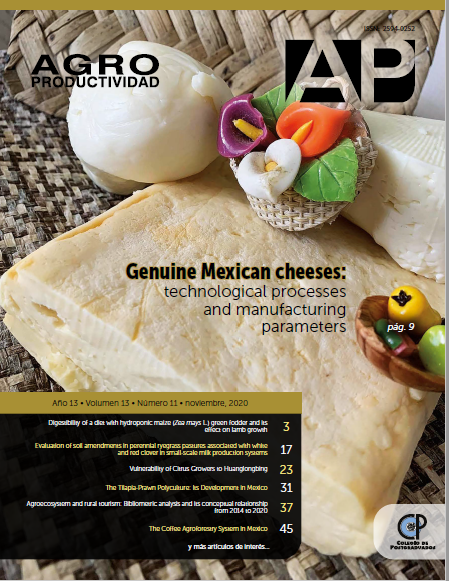Historical Reconstruction of Subordination in a Local Context: Agroecosystems with Sugarcane in Veracruz, Mexico
##plugins.themes.bootstrap3.article.main##
Keywords
Resumen
Objective: Rebuild the historical transformation of agroecosystems based on sugarcane in the sub-humid tropic, as a consequence of the change in public policies of the Mexican State in the last three decades.
Design/methodology/approach: The transformation of sugar cane agroecosystems was studied in the continuum of reality, as changes in their resource management and management practices. Thus, methodologies used included life stories, field diary, and documentary review. The information collected was transcribed and classified in a database, using keywords for their previous identification by categories. The statements were identified and ordered based on their content, interpretation, and underlying concepts.
Results: During the last century, public policies directed towards the sugar sector encouraged the existence of sugarcane agroecosystems as a monoculture. This implied changes in the management of time, work organization, orientation of the production, dependence on credits driven by the mills, and a process encouraged by the individualization of production, eroding the collective and solidarity work that lay behind other crops.
Study limitations/implications: It is important to compare these findings with other investigations done in sugar cane producing municipalities.
Findings / conclusion: Neoliberal public policies aiming the sugar sector deepened the producers' financial dependence on mills; as a consequence, they lost their autonomy in the management and use of their agroecosystems.

